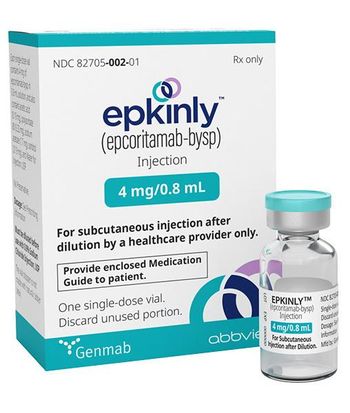
COVID-19 Vaccination May Provide Less Protection for Patients Taking Ocrelizumab, Fingolimod for MS
After administration of a COVID-19 vaccine, patients with multiple sclerosis (MS) taking ocrelizumab (Ocrevus) or fingolimod (Gilenya) may find themselves less protected against COVID-19 than the general population.
Antibody production resulting from receiving a vaccine against COVID-19 may be inhibited in patients with
The findings, which were
In the United Kingdom, mass vaccinations for COVID-19 began in December 2020 and the government gradually lifted COVID-19–related restrictions from March to July 2021.
It’s unclear whether vaccines against COVID-19 offer the same level of protection to patients with MS receiving immunomodulatory DMTs. Current studies reporting on humoral and cellular immune responses to COVID-19 vaccines among patients on DMTs for managing MS lack finding on the effectiveness of vaccines in preventing future SARS-CoV-2 infections.
“It is important that monitoring the population effect of SARS-CoV-2 vaccination is inclusive of patients on immunomodulatory treatments, especially as COVID-19 restrictions are being relaxed,” wrote the investigators.
Data on patients were collected from merging the publicly available National Health Service England Improvement (NHSE/I) database and the United Kingdom Health Security Agency (UKHSA) database. For eligibility, the patients had to be diagnosed with COVID-19 between March 2020 and August 2021. The DMTs that were assessed in the analysis were alemtuzumab, beta-interferons, cladribine, dimethyl fumarate, fingolimod, glatiramer acetate, natalizumab, ocrelizumab, and teriflunomide.
A mean (SD) of 41,208 (4301) patients with MS were receiving DMTs in England monthly during the study period, of whom 3524 were infected with COVID-19 during this time. The investigators said that their preliminary findings suggest that vaccines against COVID-19 offer minimal protection against infection of patients with MS taking ocrelizumab or fingolimod.
The incidence rate ratio (IRR) of infection for patients on ocrelizumab vs the general population was significantly increased from 1.13 (95% CI, 0.97-1.31) between November 2020 to January 2021 (prevaccination period) to 1.79 (95% CI, 1.57-2.03) between June and August 2021 (postvaccination period). Additionally, patients on ocrelizumab and rituximab showed a reduced antibody and memory B-cell response to SARS-CoV-2 vaccines.
Use of fingolimod also appeared to prevent antibody production in response to SARS-CoV-2 vaccination. In patients who were receiving fingolimod, the IRR significantly increased from 0.87 (95% CI, 0.73-1.02) during the prevaccination period to 1.40 (95% CI, 1.20-1.63) during the postvaccination period. There were no significant changes for patients who were receiving any other DMTs used to manage MS.
The investigators said that their lack of information on timing of vaccination in relation to administration of some MS DMTs, such as alemtuzumab, cladribine, and ocrelizumab, as well as potential confounding variables, including age, sex, or place of residence, were limitations.
“Population studies using individual-level data on vaccination (including interval between vaccination and SARS-CoV-2 infection), antibody levels, infections, and disease severity are required to establish the benefits of current vaccination programmes and offering third dose vaccines to patients with drug-induced immunosuppression,” the investigators noted.
Reference
Garjini A, Patel S, Bharkhada D, et al. Impact of mass vaccination on SARS-CoV-2 infections among multiple sclerosis patients taking immunomodulatory disease-modifying therapies in England. Mult Scler Relat Dis. 2021;57:103458. doi:10.1016/j.msard.2021.103458
Newsletter
Stay ahead of policy, cost, and value—subscribe to AJMC for expert insights at the intersection of clinical care and health economics.
















